The President of Ain Shams University receives the delegation of the University of Tashkent, Uzbekistan
Prof. Mahmoud El-Meteini, President of Ain Shams University, received Mrs. Gulchikhira Rekhsieva, President of Tashkent State University of Uzbek Oriental Studies, and Vice President of the University for International Affairs, Dr. Nader Abdullah Youf, head of the delegation accompanying them, to discuss strengthening joint cooperation between Ain Shams University and Tashkent University in various educational and research fields.
The meeting was attended by Prof. Abdel Fattah Saoud, Vice President for Education and Student Affairs, Prof. Ayman Saleh, Vice President for Graduate Studies and Research, Prof. Ghada Farouk, Acting Vice President for Community Affairs and Environmental Development, Prof. Shahira Samir, Executive Director of the International Relations and Academic Cooperation Sector, Prof. Sherawat Al-Ahmadi, Director of the Expatriates Department, Prof. Reem Al-Kabariti, Executive Director of the University's Alumni Associations Department.
During the meeting, Prof. Mahmoud El-Meteini, for his pleasure in receiving the honorable delegation, gave his Excellency a brief overview of the history of Ain Shams University and how it extends back to more than 2700 years, "Awn University" and its historical roots as the third oldest public university after Cairo and Alexandria Universities. His Excellency added that the faculties of medicine, engineering, and Al-Alsun are among the oldest at Ain-Shams University.
His Excellency also referred to the development of Ain Shams University and its transformation into one of the fourth-generation universities in terms of digital transformation and how it turned into a green university, in addition to the establishment of the Center for Innovation and Entrepreneurship, which is considered a nucleus for the future.
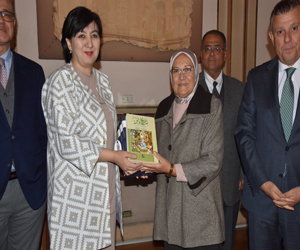 |
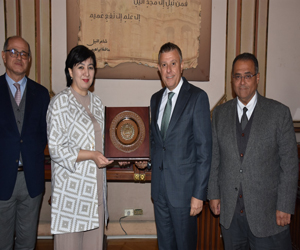 |
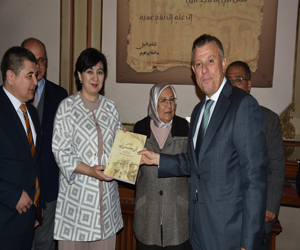 |
||
His Excellency also reviewed that the university includes about 200,000 undergraduate students, and 25,000 master and doctoral students.
His Excellency added that some sectors and centers have been introduced, such as the Sustainability Center, International Cooperation, which is entrusted with cooperation at the local and international levels, expatriate students, visiting professors, and Egyptian professors abroad, as he referred to the Ain Shams University Alumni Association.
Regarding the university's classification, His Excellency explained that Ain Shams University is competing fiercely for advanced centers globally, especially in the field of the medical sector.
For her part, the President of Tashkent University confirmed that Ain Shams University is one of the most famous universities in the Arab world and is the cradle of Egyptian education for graduating scholars and writers, expressing her appreciation for the contributions of the university and its graduates to the international community.
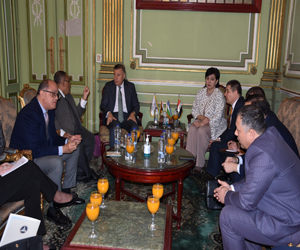 |
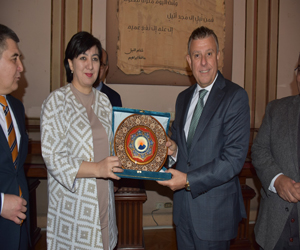 |
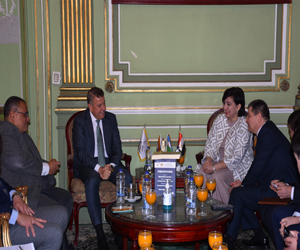 |
||
She praised the great efforts and support of Ain Shams University in teaching the Russian language and development in schools, pointing out that due to the high status of Ain Shams University, it remained the most important choice for Uzbek students who wish to study at the university or complete their postgraduate studies in the Middle East.
Her Excellency added that it is a matter of pride for her presence at Ain Shams University because of its long history and an advanced degree in international rankings and has excellent experience in this field and we are here to exchange those experiences and the number of foreign students at Ain Shams University gives clear indications of the importance of the university and its position in the world, noting that Tashkent University of Oriental Studies is one of the oldest universities in Central Asia, 105 years old, and a large number of ministers and ambassadors graduated from it.
Her Excellency also expressed her desire to cooperate in the field of preparing and training teachers of the Arabic language, which is the most important thing for mastering the Arabic language, and the exchange of professors between university students to strengthen this cooperation, teaching the Uzbek and Russian languages, and cooperation in the field of research, antiquities, and the restoration of manuscripts and museums.
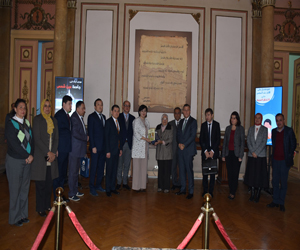 |
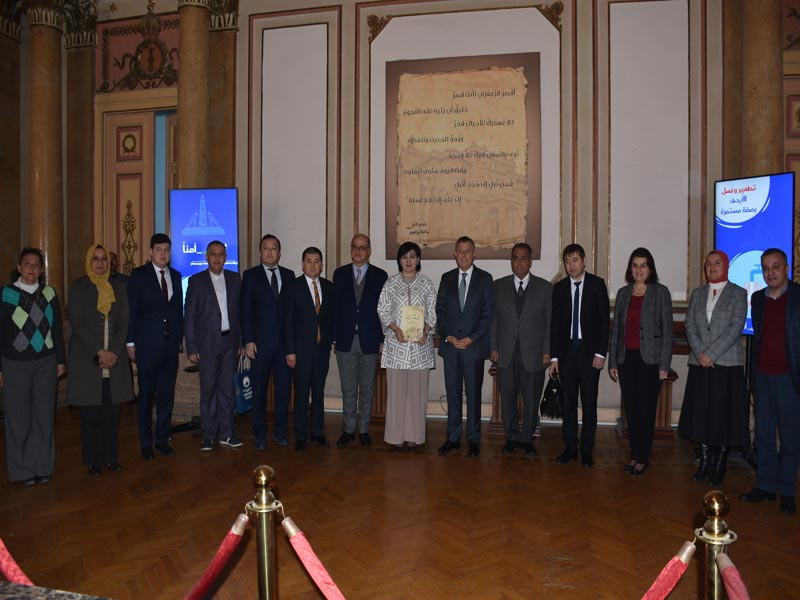 |


.svg)




